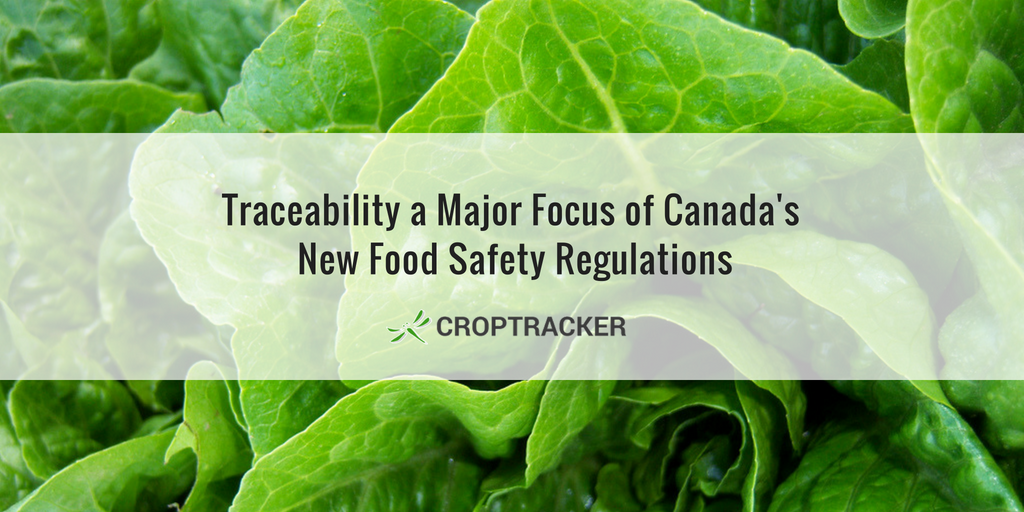This week the Canadian government published what the Canadian Produce Marketing Association calls the most significant overhaul of food safety regulations in the nation's history. Effective January 15, 2019, the new "Safe Food for Canadians Regulations" address food safety and traceability and will have several ramifications for Canadian growers and processors. One of the collective goals of the update is to ensure faster recalls and prevent the spread of food-borne illnesses. The announcement comes in the wake of this year's deadly U.S. outbreak of E. coli; which has ignited grower, legislative, and consumer concerns about the efficacy of food safety measures.
The issue of traceability constitutes a major focus of the regulatory update.To ensure the safety of Canadians and increase confidence in Canada's food safety system, several new traceability rules will apply to growers and processors depending on their business activity and level of trade. For example, growers of fresh fruits and vegetables who export to other provinces or abroad will be required to prepare and keep documents for 2 years relating to the identification of the product, and the ability to track a product one step forward in the supply chain. For example, your documents must indicate the common name of the fruit or vegetable that you produce, the lot code or other unique identifier to allow for the fruit or vegetable to be traced, and the name and principal place of business where you grow or harvest the fruit. Then, you must be able to provide the name and address of the person to whom you provide the fruit or vegetable (excepting consumers at retail level) and the date you provided the produce.
While primarily concerned with food safety and traceability, the new regulations will also have significant ramifications for trade and commerce in the produce industry - specifically, surrounding membership in the Fruit and Vegetable Dispute Resolution Corporation (DRC). Beginning January 2019, Canadians who buy, sell, or negotiate the sale of fruits and vegetables inter-provincially, intra-provincially, or internationally will be required to be a DRC member in good standing. The DRC offers a common set of trading standards and member responsibiltiies that promote "the fair and ethical trading of produce entering the North American marketplace". As part of their membership, producers will have access to a wide range of mediation, arbitration, and business networking services provided by the DRC. Information regarding becoming a DRC member can be found here.
The deadlines for compliance with the new regulations vary, again, depending on producers' business activity and level of trade. To determine your operation's timeline, click here.

Technology can play a large role in helping producers fulfill the new requirements without incurring large time and labour costs. Farm management software can help growers log this pertinent information easily and efficiently. Unlike paper records, scores of digital records can be stored long-term securely without the need for complicated filing systems, and can be swiftly retrieved and transmitted by the owner in under a minute. RFID scanning technology, as is compatible with the Croptracker platform, can also take the manual work out of data entry and eradicate the chance of human error.
Interested in learning more about Croptracker? Learn more about our Farm Management Software, or book a demonstration to schedule a meeting with our product experts. Or if you liked this article, subscribe to our monthly newsletter!
And as always, if you're ever stuck, never hesitate to e-mail us at support@croptracker.comor Live Chat with us by clicking the green speech bubble ![]() in your bottom right-hand corner. We're always happy to help, so Croptracker can make your farm more efficient, safer, and more profitable!
in your bottom right-hand corner. We're always happy to help, so Croptracker can make your farm more efficient, safer, and more profitable!


